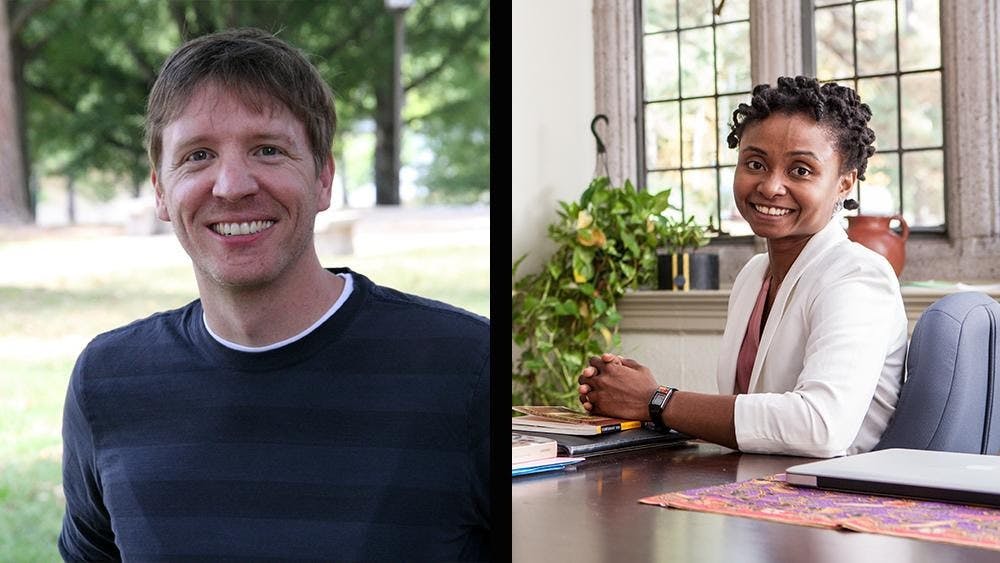Two University of Richmond professors received Fulbright awards to support their research projects.
Jory Brinkerhoff, an associate professor of biology, and Manuella Meyer, an associate professor of history, will be researching at Nihon University, Tokyo, and at the Oswaldo Cruz Institute, Rio de Janeiro, respectively.
Brinkerhoff will study Bartonella, a genus of bacteria that spreads disease such as trench fever from animals to humans through parasites such as fleas and sandflies.
"I'm interested in the intersection of human disease and environmental ecology," Brinkerhoff said.
With his colleagues at Nihon University, he will be looking at parasite transmission in Japanese macaques, also known as snow monkeys.
"There's a new research technique I'll be using in my project, and it's next-generation sequencing," Brinkerhoff said. "It allows you to look at a million things happening in DNA all at once."
The results of the research will benefit public health concerns as well.
“Snow monkeys often travel and sit in the hot springs, so there’s human interaction," Brinkerhoff said. "Once we understand the history and how these diseases are transmitted, we’ll let the public know about its impact."
Hannah Cornman, senior, has worked with Brinkerhoff on similar research about Lyme disease and its prevalence across Virginia.
“I've worked in his lab since my sophomore year, and he has been such a great research mentor," Cornman said in an email. "He guides me but also lets me have a lot of independence."
In Brazil, Meyer's project will serve as the basis of her second book. Her first book, "Reasoning Against Madness: Psychiatry and the State in Rio de Janeiro, 1830-1944," examined the emergence of psychiatry, the asylum movement, gender, race and colonialism.
"Early psychiatrists in Brazil would have child clinic centers in various communities where parents were encouraged to talk to experts for parenting advice,” Meyer said. “These psychiatrists also launched an anti-healer movement against Afro-Brazilian healers with spiritual practices, known as Candomblé, because they saw them as primitive.”
Enjoy what you're reading?
Signup for our newsletter
The development of psychiatry in Brazil had political and nationalistic ties as well.
“President Vargas, who comes into power in the 1930s, opens a space for these healers and labels the campaigns against them as not Brazilian," Meyer said. "He argued that they should coexist with psychiatrists."
For her research, Meyer said she would be examining how the figure of the child was the vehicle through which many people channeled their hopes and aspirations for the development of the nation.
“I will be looking at primary documents in the archives at Oswaldo Cruz Institute, one of the largest public health research institutions, for my research,” Meyer said.
Senior Sabrina Cabezas took a history class with Meyer during her sophomore year.
"In a single sentence, she is seriously one of the smartest people I have ever met,” Cabezas said in an email. “She really encouraged me and others to pursue our various passions in unique, new ways.”
Brinkerhoff is thankful for the opportunity to live with his family in another country during his research, he said. Meyer said she would like to thank David Brandenberger and Carol Summers in the history department for reading over her research proposal.
Contact features writer Sunny Lim at sunny.lim@richmond.edu.
Support independent student media
You can make a tax-deductible donation by clicking the button below, which takes you to our secure PayPal account. The page is set up to receive contributions in whatever amount you designate. We look forward to using the money we raise to further our mission of providing honest and accurate information to students, faculty, staff, alumni and others in the general public.
Donate Now



